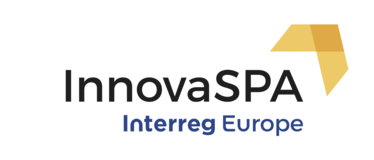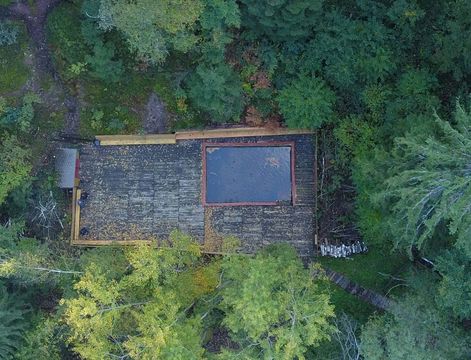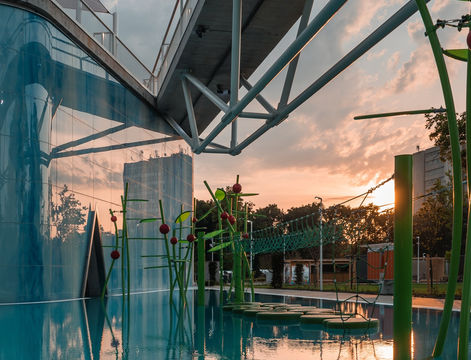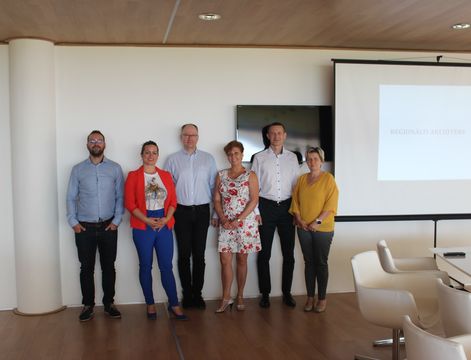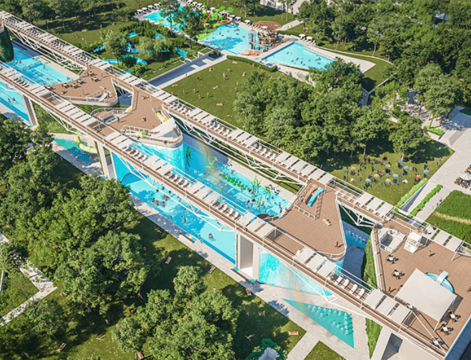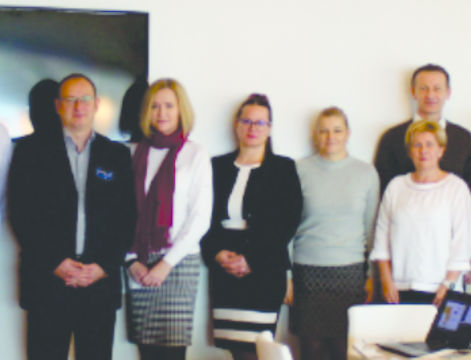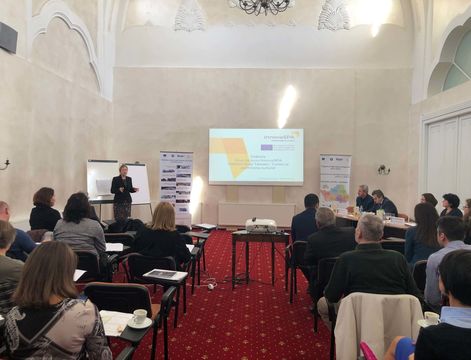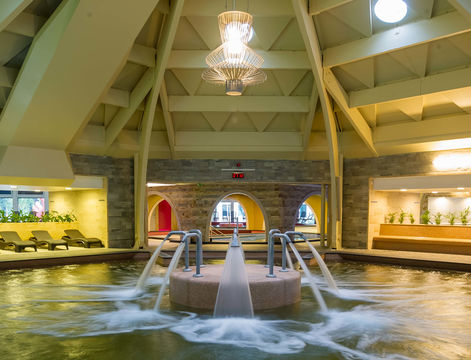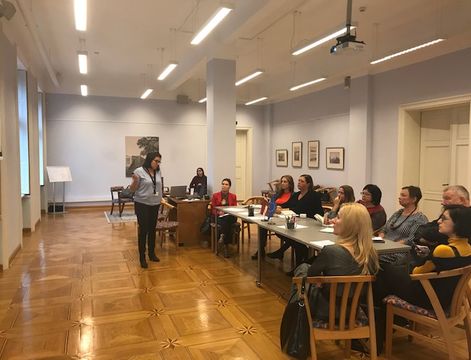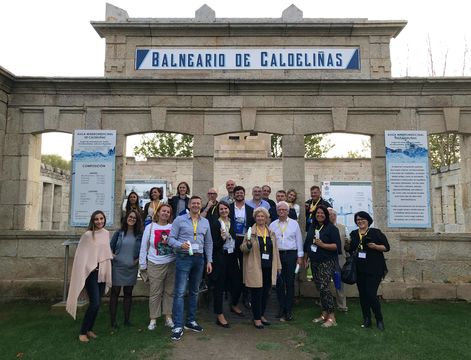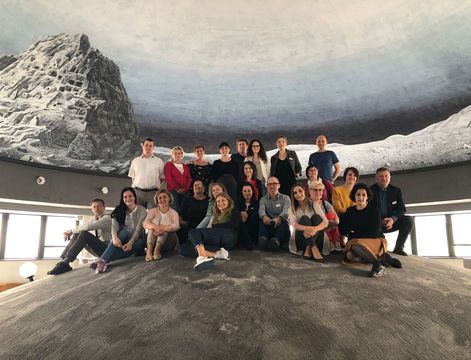On the 26th of October 2018, all ten stakeholders of the Faculty of Medicine of the University of Porto (FMUP) sent a representative to meet there for the 1st meeting of the Group: ARS-Norte (Norte representation of the Ministry of Health), Plataforma Saúde em Diálogo (patient association), Ordem dos Médicos (Competência de Hidrologia) – national medical doctor professional association, Associação Nacional da Espondilite Anquilosante (patient association), Sociedade Portuguesa de Hidrologia Médica e Climatologia (scientific society), Comunidade Intermunicipal do Tâmega e Sousa (NUTS3 in the Norte), Associação Nacional dos Doentes com Artrite Reumatóide (patient association), CHU São João (district hospital), Associação Termas de Portugal (national SPA association), and Comissão de Coordenação e Desenvolvimento Regional do Norte (Norte managing authority).
First, the participants selected one Good Practice: “Eurocidade Chaves-Verín”, actually supported by an Interreg POCTEP project connecting two countries (Portugal and Spain), two NUTS 1 (Noroeste–ES, Continente–PT), two NUTS 2 (Galicia–ES, Norte–PT), and two NUTS 3 (Ourense–ES, Alto Tâmega-PT). The problems addressed are: i) cross-border and inside-border competition in the exploitation of thermal sources; ii) difficult access for people over 65-yrs old to SPA programmes; iii) poor research in thermal water. For the latter, it is very relevant the establishment of a Water Research Centre in Chaves, essential at a global level (very little science). Another success is the Pedagogical Baths of Vidago and the acquisition of new knowledge and competences on cosmetology. The marks “Water Eurocity”, “Water and Thermal Route”, and “Water and Thermal Euroregion” are examples for other regions in Europe and worldwide.
Then, a full SWOT analysis for the Norte region on six separate themes was made, using two co-creation methods: “brainstorming” and “ranking and voting”, with results (in summary, one each):
- Designing innovative cures and care solutions to invent new therapy: strengths: SPAs are in places where the air quality, humidity, altitude and solar exposure bring in extra health benefits; weaknesses: Insufficient technical training on hydrology (pre-graduates); opportunities: The Government will pay thermal treatments again; threats: Thermalism is an area with little research published/disseminated.
- Making healthcare, preventive care and rehabilitation more efficient: strengths: Several examples of efficiency in health units in the Norte Region; weaknesses: Lack of ISI papers on rehabilitation; opportunities: The thermal cure effects last longer than in other cures and have no secondary effects; threats: Underfunding of the health sector in Portugal is hardly enough for the "cure": prevention funding is further away.
- Push preventative health and patients' well-being for an healthy lifestyle: strengths: SPAs are historical in Portugal (2000 years) so they are interspersed within the national culture, in particular within the Norte Region; weaknesses: Only wealthy patients can have thermal preventative/wellness treatments; opportunities: SPA thermal programmes on health promotion, even better than prevention; threats: Falling into an "alternative medicine" option for some thermal treatments, risking to discredit the scientific basis of other treatments.
- Push scientific collaborative projects to invent new products or new concepts based on thermal spa water with normative specifications ensuring the reproducibility of protocols within the thermal spa companies: strengths: The Region with more SPAs in Portugal, with hydromineral richness and excellency, in quantity and in quality (potential for a great variety of new products/concepts); weaknesses: Very little regional coordination among research-innovation-entrepreneurship; opportunities: Thermal waters cannot be produced in a laboratory; threats: Very hard to place new products at competitive prices where the market is largest (e.g. large commercial surfaces).
- Designing new regional thermal strategies for developing new policies in relation to the preventative health and thermalism measures: strengths: National Health Department Technical Commission includes several members of the FMUP's Stakeholders Group; weaknesses: Difficult to attract foreign patients, since most dissemination is made in Portuguese; opportunities: Promotion of social relationships, since SPAs are optimal for group activities; threats: The Norte Region has not enough autonomy for the actual implementation of policies.
- Marie Curie Innovative Training Network (ETN: not for doctoral training): strengths: A lot of experience on training and supervising research students; weaknesses: Very low employability of researchers in thermalism in the Norte Region; opportunities: Area needs researchers (Europe and world); threats: ITN programme is very competitive, especially ETN (<5% success rates).
